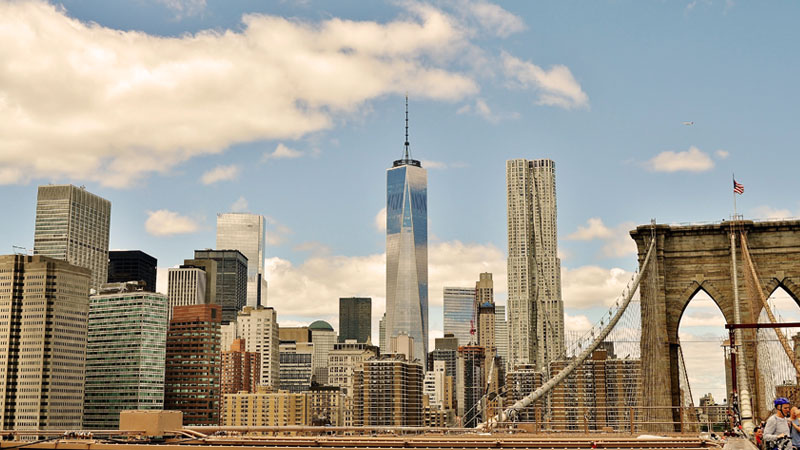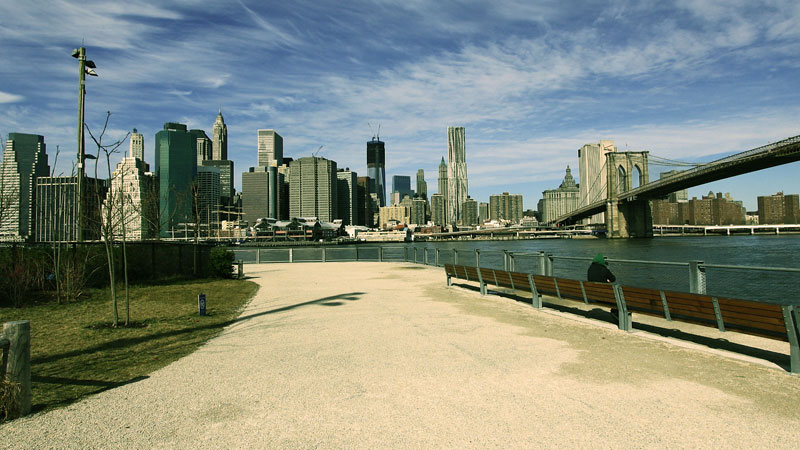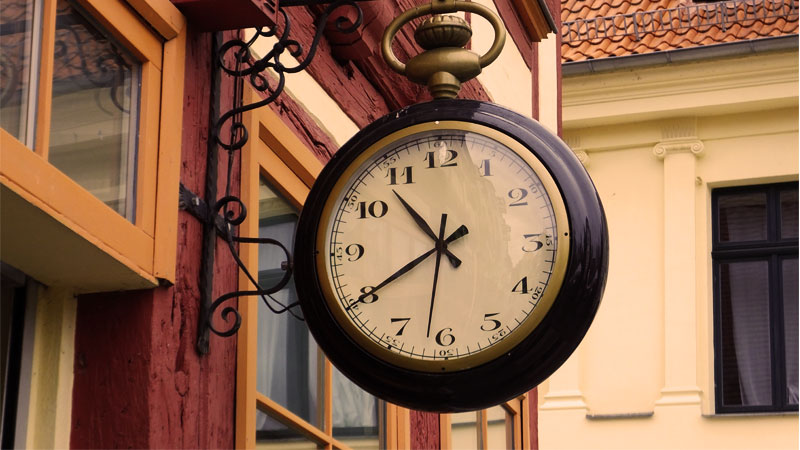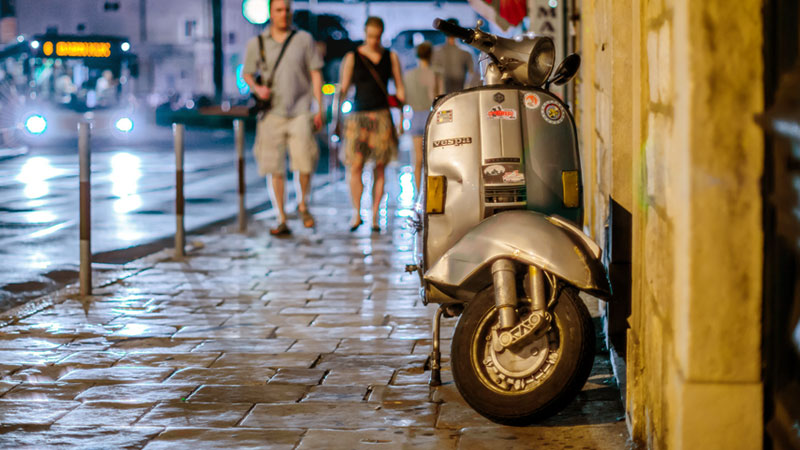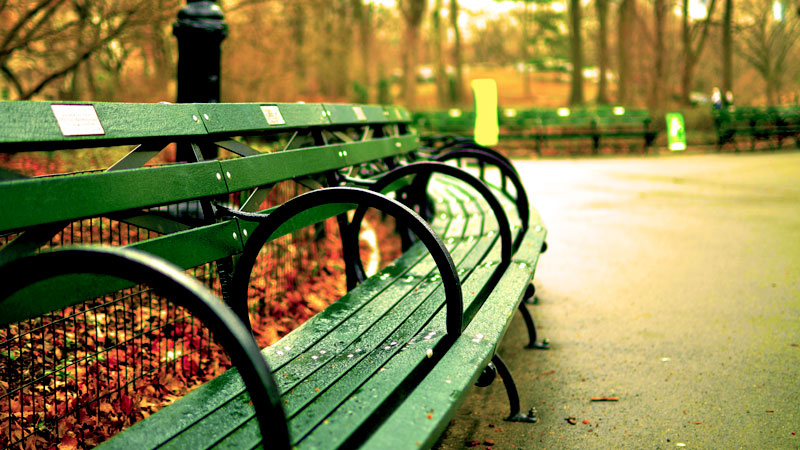
Russia bans entry of top Japanese executives
TOKYO — Russia has banned the head of Toyota and 12 other senior Japanese business figures from entering the country, prompting a protest by Tokyo on Wednesday.
The list published by Russia’s foreign ministry on Tuesday includes Toyota chairman Akio Toyoda, Rakuten chief Hiroshi Mikitani and Akihiko Tanaka, president of the government-backed Japan International Cooperation Agency.
The decision was a “response to Japan’s ongoing sanctions against our country in connection with the special military operation,” the foreign ministry statement said, using Moscow’s term for its invasion of Ukraine.
It did not explain how individuals were chosen for the list, which did not include the heads of major Japanese firms like Mitsubishi, Honda and Sony.
Japan has strongly backed the Western position on Ukraine, providing Kyiv with financial and material support and sanctioning Russian individuals and organizations.
Japan’s pacifist constitution restricts it from exporting weapons, but in December, Tokyo loosened arms export controls to enable it to sell domestically made Patriot missiles to the United States.
The move was aimed at replenishing U.S. inventories of the air defense missile systems that have run low because of supplies sent to Ukraine.
“Measures announced by Russia this time will restrict fair activity by Japanese companies, and are absolutely unacceptable,” Japanese government spokesman Yoshimasa Hayashi said Wednesday.
He said Tokyo had lodged a protest and that “all of our sanctions stem from Russia’s Ukraine invasion, which is a clear violation of international law.”
…
UK royal family sets out plan to reach net zero
LONDON — Britain’s royal family on Wednesday set out its latest plans to reduce its carbon footprint, including the installation of heat pumps at the centuries-old Windsor Castle near London.
Other environmentally friendly initiatives include the electrification of the royal family’s luxury fleet of vehicles, including the Bentley State Limousines.
King Charles III, a life-long environmentalist, famously owns a 1970 Aston Martin DB6 that he had converted to run on biofuel produced from surplus English white wine and whey from cheese manufacturing.
The sports car was a gift from his mother, the late Queen Elizabeth II, for his 21st birthday.
Under the net-zero plans, set out in the family’s annual report and accounts for the financial year of April 1, 2023, to March 31, 2024, jet fuel for helicopters and chartered aircraft will be replaced with sustainable aviation fuel.
Royal properties in central London such as Buckingham Palace would also be connected to heat networks.
These are considered a more efficient way of providing heat by producing and distributing heat from a central source, rather than relying on individual boilers.
“These projects … have substantial potential to reduce the royal household’s GHG (greenhouse gas) emissions,” the report said.
The first solar panels, which convert sunlight into electricity, have been installed at the 900-year-old Windsor Castle, one of Charles’s main residences.
The report published alongside annual accounts revealed that profit from the royal family’s land and property holdings, the Crown Estate, more than doubled last year to a record $1.4 billion, driven by a short-term boost from offshore wind farms.
The Crown Estate is an independently run business whose profits go to the government, which hands a small portion of the money to the monarchy to support official duties of the royal family.
The estate owns the vast majority of Britain’s seabed, stretching up to 12 nautical miles from the mainland, and leases part of it to wind farm operators.
The surge in profits was mainly the result of option fees — payments made by companies to reserve a patch of the seabed to eventually build their wind turbines.
The most recent round of offshore wind leasing saw licenses granted for three wind farms in the North Sea and three in the Irish Sea.
Last week, the new Labour government announced plans to widen the investment powers of the Crown Estate, giving it more scope to borrow for investments including offshore wind projects.
The government said that in doing so, 20 to 30 gigawatts of energy from offshore wind would be created by the end of the decade.
It has also proposed boosting investment in sustainable aviation fuel plants across the country.
…
Rights groups criticize efforts to displace migrants ahead of Paris Olympics
Rights groups accuse French authorities of “social cleansing” ahead of the Paris Olympics by uprooting migrants, sex workers and others around the capital — undermining promises of making these Games the most inclusive ever. The government says it’s simply trying to address a longstanding problem. Lisa Bryant has more from the French capital.
…
US invites Sudan’s warring parties for talks in Switzerland in August
WASHINGTON — The United States has invited the Sudanese army and the paramilitary Rapid Support Forces for U.S.-mediated cease-fire talks starting on August 14 in Switzerland, Secretary of State Antony Blinken said on Tuesday.
The talks will include the African Union, Egypt, the United Arab Emirates and the United Nations as observers, Blinken said in a statement. Saudi Arabia will be a co-host for the discussions, he added.
“The scale of death, suffering, and destruction in Sudan is devastating. This senseless conflict must end,” Blinken said, calling on the Sudanese Armed Forces, or SAF, and Rapid Support Forces, or RSF, to attend the talks and approach them constructively.
The war in Sudan, which erupted in April 2023, has forced almost 10 million people from their homes, sparked warnings of famine and waves of ethnically driven violence blamed largely on the RSF.
Talks in Jeddah between the army and RSF that were sponsored by the United States and Saudi Arabia broke down at the end of last year.
State Department spokesperson Matthew Miller told reporters on Tuesday that the goal of the talks in Switzerland was to build on work from Jeddah and try to move the talks to the next phase.
“We just want to get the parties back to the table, and what we determined is that bringing the parties, the three host nations and the observers together is the best shot that we have right now at getting the nationwide cessation of violence,” Miller said.
…
Hungary’s foreign minister indifferent to shift of EU meeting away from Budapest
Budapest, Hungary — Hungary’s foreign minister voiced indifference on Tuesday over a decision by the European Union’s top diplomat to shift an EU ministers’ meeting from Budapest to Brussels in a sign of disapproval over Hungary’s initial use of the EU presidency.
“It was all the same to me in the beginning, and it’s all the same to me now,” Peter Szijjarto said in a statement.
EU foreign policy chief Josep Borrell acted after Hungarian Prime Minister Viktor Orban began a self-styled Ukraine peace mission by holding talks with Russian President Vladimir Putin and U.S. Republican presidential candidate Donald Trump.
Orban, a nationalist who has often been at odds with broader EU policy, embarked on his quest without coordinating it with other EU government leaders or Ukraine just days after Hungary took on the 27-bloc’s rotating presidency on July 1.
“We have to send a signal, even if it is a symbolic signal,” Borrell told reporters in Brussels on Monday after the last meeting of EU foreign ministers before the summer break.
Borrell said there had been no consensus among EU members over whether to attend the ministerial meeting in the Hungarian capital, Budapest, planned for Aug. 28-29 and a gathering of defense ministers afterwards.
He said he opted to switch both meetings to Brussels given that a majority of countries wanted to send a message to Hungary over Orban’s outreach to Russia, which is subject to EU sanctions over its nearly two-and-a-half-year-old invasion of Ukraine.
…
China, Russia push back over Washington’s Arctic warning
Washington — Russia and China on Tuesday pushed back against a U.S. warning over their increasing military and economic cooperation in the Arctic, where climate change is opening up greater competition.
Russia has in recent years beefed up its military presence in the Arctic by reopening and modernizing several bases and airfields abandoned since the end of the Soviet era, while China has poured money into polar exploration and research.
“We’ve seen growing cooperation between the PRC and Russia in the Arctic commercially, with the PRC being a major funder of Russian energy exploitation in the Arctic,” Deputy Secretary of Defense Kathleen Hicks told journalists Monday, using an abbreviation for the People’s Republic of China.
There is also growing military cooperation, “with Russia and China conducting joint exercises off the coast of Alaska,” Hicks said as the department released its 2024 Arctic strategy.
“All of these challenges have been amplified because the effects of climate change are rapidly warming temperatures and thinning ice coverage, and it’s enabling all of this activity,” she said.
The rapid melting of polar ice has sent activity in the inhospitable region into overdrive as nations eye newly viable oil, gas and mineral deposits as well as shipping routes in an area with a complex web of competing territorial claims.
Moscow is heavily promoting its Northern Sea Route, an alternative cargo route for vessels travelling between Europe and Asia.
‘Discord and tension’
China and Russia both defended their policies in the region on Tuesday.
Beijing said it acts on the “principles of respect, cooperation, mutual wins and sustainability,” adding it was “committed to maintaining peace and stability” in the region.
“The United States distorts China’s Arctic policy and makes thoughtless remarks on China’s normal Arctic activities [which are] in accordance with international law,” foreign ministry spokeswoman Mao Ning said.
Kremlin spokesman Dmitry Peskov said Russia “does its part to ensure that the Arctic does not become a territory of discord and tension.”
He told reporters that Russia’s cooperation with China “contributes to an atmosphere of stability and predictability” in the Arctic and their actions were not targeted against other countries.
Washington’s Arctic strategy describes the area as “a strategically important region” for the United States that includes “the northern approaches to the homeland” and “significant US defense infrastructure.”
It says climate change could result in the Arctic experiencing its first “practically ice-free summer by 2030.”
“Increases in human activity will elevate the risk of accidents, miscalculation, and environmental degradation,” and US forces “must be ready and equipped to mitigate the risks associated with potential contingencies in the Arctic.”
…
New US Arctic strategy focused on Russian, Chinese inroads
washington — The United States is looking to boost intelligence collection in the Arctic and enhance cooperation with allies in the region, to prevent Russia and China from exploiting the cold and icy northern region at America’s expense.
The mandate, part of the Pentagon’s just-released 2024 Arctic Strategy, comes as U.S. defense officials warn climate change is melting Arctic ice that used to keep adversaries at bay, and there are indications of growing Russian-Chinese cooperation in the region.
“In the Arctic, the strategic can quickly become tactical,” said Deputy Defense Secretary Kathleen Hicks, briefing reporters at the Pentagon.
“Ensuring that our troops have the training, the gear and the operating procedures for the unique Arctic environment [may] be the difference between mission success and failure,” she added.
The newly unveiled strategy calls for expanding the types of surveillance and intelligence capabilities that the U.S. military employs elsewhere in the world to the far north, where frigid temperatures can interfere with their operation.
Specifically, the strategy outlines the need for more ground-based sensors, space-based sensors and long-range radar to better pick up on activity by U.S. adversaries.
The U.S. is also looking to increase its unmanned aerial reconnaissance capabilities and its communication capabilities.
Hicks said the U.S. has already invested tens of millions of dollars in such capabilities, but that more is needed.
“The Arctic’s vast distances, especially in North America, make supporting infrastructure vital for Arctic operations and presence,” according to the new strategy. “However, much of the legacy Cold War-era infrastructure has declined over time due to the harsh environment, lack of investment, and climate change-driven permafrost thawing and coastal erosion.”
One bonus for the new Arctic strategy, according to U.S. defense officials, is the accession of Sweden and Finland to NATO, which means every Arctic nation except for Russia is now part of the Western alliance.
U.S. officials have repeatedly praised Swedish and Finnish capabilities in the Arctic, and the strategy envisions additional joint exercises and cooperation, which could be required to counter an uptick in Russian and Chinese activities in the region.
“It’s very noticeable and concerning,” Hicks said.
“The Russians, of course, have, even as they’ve continued their operation, their war in in Ukraine, they’ve been continuing to invest in their infrastructure throughout the Arctic region that they can access,” she said. “And then we’ve seen much more PRC [People’s Republic of China] activity, both in terms of so-called research, but because of their civil fusion, we always have concern that there’s a military aspect to that.”
There have also been signs of increased cooperation between Russia and China.
The two countries conducted a joint naval patrol near Alaska’s Aleutian Islands last August, prompting the U.S. to deploy four naval destroyers and patrol aircraft as a precaution.
But Iris Ferguson, deputy assistant secretary of defense for the Arctic, told reporters Monday that those types of Russian and Chinese efforts are just the tip of the iceberg.
“We’ve seen an uptick, an uptick in their cooperation over the last couple of years,” Ferguson said. “We see China investing in a lot of Russian energy in order to not only have them supply that energy to the PRC, but also that is helping embolden some of Russia’s activity in Ukraine.”
Ferguson sought not to overplay the threat, saying Russian-Chinese cooperation in the Arctic is “somewhat superficial in nature still, especially from a military perspective.”
However, Pentagon officials expect the Russian-Chinese military relationship to evolve, noting the growing level of Chinese military research in the Arctic and Beijing’s attempts to “internationalize” and influence the region as a whole.
“We see them operating more regularly in the last several years from a military perspective. Even just a couple of weeks ago, there were several Chinese warships off of the coast of Alaska,” Ferguson said. “They are our long-term pacing challenge and I think that that includes in the Arctic.”
The Russian and Chinese embassies in Washington have yet to respond to requests for comment.
…
Belarus frees head of banned party as Lukashenko slowly releases some political prisoners
TALLINN, Estonia — The head of a banned Belarusian opposition party who had been behind bars for two years was released on Monday as the authoritarian country frees a trickle of political prisoners, according to the respected human rights group Viasna.
Mikalai Kazlou, who led the United Civic Party, was serving a 2½-year sentence on allegations of organizing actions violating the public order. His arrest came amid a harsh crackdown on the opposition that began as mass demonstrations gripped the country.
Those protests followed a presidential election in 2020 whose disputed results gave Alexander Lukashenko a sixth term.
Many prominent opposition figures were imprisoned in the crackdown and others fled the country, including Sviatlana Tsikhanouskaya, who was Lukashenko’s prime challenger in the election.
The Belarusian Supreme Court banned the United Civic Party a year after Kazlou’s arrest.
Lukashenko announced an amnesty in early July for some seriously ill political prisoners, and 19 have been released so far. But 1,377 remain imprisoned, according to Viasna. The prisoners include the group’s founder, Nobel Peace Prize laureate Ales Bialiatski.
Activists say authorities have created conditions akin to torture in prisons, depriving political prisoners of medical care, transfers and meetings with lawyers and relatives.
Lukashenko’s release of ill political prisoners indicates he may be trying to improve relations with the West ahead of seeking reelection next year, Belarusian analysts suggest. He also recently dropped visa requirements for European Union citizens arriving by rail and road.
…
Russia convicts 2nd American journalist in secret trial
Trial of Alsu Kurmasheva a ‘mockery of justice’ says RFE/RL president as Russia sentences journalist to more than 6 years in jail
…
Ukraine’s top diplomat to visit China this week to talk peace, Kyiv says
KYIV/BEIJING — Ukraine’s top diplomat will visit China on Tuesday at the invitation of Beijing for talks that Kyiv said would focus on how to end Russia’s war in Ukraine and on a possible Chinese role in reaching a settlement.
Nearly 29 months since Russia’s full-scale invasion, Foreign Minister Dmytro Kuleba will discuss bilateral ties at talks with Chinese Foreign Minister Wang Yi during a trip to China from July 23 to 25, the Ukrainian foreign ministry said.
“The main topic of discussion will be the search for ways to stop Russia’s aggression and China’s possible role in achieving a stable and just peace,” the Ukrainian ministry said in a statement on its website.
The Chinese statement said Kuleba’s visit would run from July 23 to 26 and provided less detail.
The trip is unusual as China is widely seen as close to the Kremlin, with which Beijing declared a “no limits” partnership in 2022 just days before Russia’s invasion of Ukraine.
Though the world’s second largest economy has not condemned the Russian invasion and helped keep Russia’s war economy afloat, Kyiv has been cautious in its criticism of Beijing.
China meanwhile says its ties with Russia are built on the basis of non-alliance and do not target any third party.
Various peace initiatives have emerged in recent months as the fighting has dragged on ahead of a U.S. election in November that could see the return to power of ex-president Donald Trump who has threatened to cut vital aid flows to Ukraine.
Kyiv held an international summit without Russian representation in Switzerland in June to promote its vision of peace and now says it hopes to be ready to hold another one in November that would feature Russian representation.
China, which did not attend the Swiss summit, together with Brazil published a separate six-point peace plan on May 23, saying they supported an international peace conference being held that would be recognized by both sides in the war.
Ukrainian President Volodymyr Zelenskyy has said that only the world’s powerful countries would be able to successfully bring an end to the war, singling out China as well as Kyiv’s close U.S. ally as two possibilities.
The Ukrainian leader has said that China should play a serious role in helping to resolve the war.
…
Pakistan demands Germany prosecute consulate attackers
Islamabad — Pakistan has condemned Germany’s “failure” to safeguard its consulate in Frankfurt from being stormed and vandalized Saturday by dozens of protesters reportedly carrying Afghanistan’s national flag.
In a Sunday statement issued in Islamabad, the foreign ministry, without naming any specific nationality, described the assailants as “a gang of extremists” and decried the security breach of the consular mission, saying it endangered the lives of its staff.
“We are conveying our strong protest to the German government,” the ministry said. It urged Germany to take “immediate measures to fulfill its responsibility” under the Vienna Convention on Consular Relations to ensure the security of the Pakistani diplomatic missions and staff in the country.
Social media video from Saturday’s incident shows scores of people holding the tricolor Afghan national flag and jumping the fence to get into the consulate building in Frankfurt, with one of them taking down Pakistan’s flag. The protesters were reportedly shouting abuses and pelted the diplomatic facility with stones.
Diplomatic sources and witnesses in the German city confirmed the authenticity of the video to VOA, but it was not immediately known what the crowd was protesting.
Pakistani official sources told VOA that the attack was “a serious security lapse on the part of the German side.” They said German authorities did not inform the consulate staff about the upcoming protest or increase security for the diplomatic facility as per the “standard operating procedures.”
There was no immediate reaction from the German government to the attack and its denunciation by Pakistan.
Taliban authorities in Afghanistan did not comment on the incident either.
“We also urge the German authorities to take immediate measures to arrest and prosecute those involved in yesterday’s incident and hold to account those responsible for the lapses in security,” the Pakistani statement said.
Earlier, the Pakistani Embassy in Berlin also denounced the consulate attack as a “reprehensible vandalizing act.” It wrote on social media platform X, formerly Twitter, that the diplomatic mission was in contact with the German authorities “to ensure such a situation doesn’t arise again and the miscreants face legal consequences.”
The embassy appealed to Pakistanis in Germany to remain patient and calm in the aftermath of the episode.
German authorities have increasingly linked Afghan asylum-seekers in the country to criminal activities and announced last month they are considering resuming deportations of criminals to Afghanistan.
The announcement by German Interior Minister Nancy Faeser came just days after a 25-year-old Afghan asylum-seeker was accused of fatally stabbing a police officer in Manheim.
Germany ceased deporting migrants to Afghanistan after the Taliban regained power in August 2021 due to the risk of death in their home country.
“It is clear to me that people who pose a potential threat to Germany’s security must be deported quickly,” Interior Minister Faeser told a June 4 news conference.
She emphasized that her country’s “security interests clearly outweigh the interests of those affected” and, “We are doing everything possible to find ways to deport criminals and dangerous people” to Afghanistan and Syria.
On July 8, Germany abruptly announced the closure of its consulate in the southern Pakistani city of Karachi until further notice. It cited “imminent security concerns” but did not specify them. A consulate announcement last Friday, however, said the German diplomatic facility had “resumed normal operations.”
The abrupt closure of the German consulate apparently had surprised and upset the Pakistani hosts.
“Consulates in various cities offer important consular services and promote business-to-business ties,” Pakistani foreign ministry spokesperson Mumtaz Baloch told reporters Friday, just hours before the German consulate announced the resumption of its operations.
“Closure of operations of any consular mission in Karachi would affect these services and slow down engagement with the biggest metropolis and the financial and commercial center of Pakistan,” Baloch said.
…
Outrage after Italy reporter attacked at neo-fascist event
Rome — Italian politicians including Prime Minister Giorgia Meloni expressed outrage Sunday after a journalist was beaten up in the northern city of Turin by suspected neo-fascists.
On Saturday night, the reporter for La Stampa daily came upon by chance a party being held by the neo-fascist fringe group CasaPound, involving smoke bombs and fireworks. He started filming with his phone.
According to his footage and an account by the newspaper, a group of men came up to him and asked, “Are you one of us?” Then they attacked him, causing him to require hospital treatment.
Meloni, the leader of the far-right Brothers of Italy party, offered her solidarity with the journalist, Andrea Joly, over the “unacceptable attack.”
It was “an act of violence that I strongly condemn and for which I hope those responsible will be identified as quickly as possible,” she said in a statement.
Elly Schlein, leader of the center-left opposition Democratic Party, also offered her solidarity with Joly and condemned a “climate of impunity.”
“What else are we waiting for before neo-fascist organizations are dissolved, as the constitution says?” she asked.
The attack was one of two incidents of random violence that made headlines this weekend in Italy, after a shocking video emerged of two gay men being beaten up by three men and a woman in Rome.
That attack also drew condemnation from across the political spectrum.
Foreign Minister Antonio Tajani on Sunday deplored “too much violence and intolerance in Italy against those who do not think like you,” writing on X, formerly Twitter, that he “strongly condemned any violence.”
…
Pope hopes truce on wars can come from Paris Olympics
VATICAN CITY — Pope Francis said on Sunday he hoped the Paris Olympics would be an occasion for truces in the world’s conflicts, urging athletes to be messengers of peace and models for young people.
The games start on July 26 with an opening ceremony on the River Seine that will feature about 10,500 athletes and over 100 heads of state and government.
During his weekly address to the crowds in St Peter’s Square, the pope said he hoped that “according to the ancient tradition, the Olympics will be an opportunity to establish a truce in wars, by demonstrating a sincere desire for peace.”
He mentioned the conflicts in Ukraine, Gaza, Myanmar and other countries, saying “let us not forget war is a defeat.”
Last month the final statement of a Group of Seven (G7) leaders’ meeting held in Italy included a unanimous call for a truce in global conflicts during the Olympic Games.
…
Zelenskyy calls for long-range weapons after drone attack on Kyiv
KYIV — Ukraine needs long-range weapons to protect its cities and troops on the frontline from Russian bombs and drones, Ukrainian President Volodymyr Zelenskyy said on Sunday after a massive overnight drone and missile attack.
Russia launched its fifth drone attack on Kyiv in two weeks overnight, with Ukraine’s air defense systems destroying all the air weapons before they reached the capital, Ukraine’s military said.
Ukraine’s air force said on Telegram that its air defense systems destroyed 35 of the 39 drones and two cruise missiles that Russia had launched overnight. The weapons, the air force said, targeted 10 of Ukraine’s regions.
It was not immediately clear how many drones were launched at Kyiv. There were no casualties and no significant damage reported, Serhiy Popko, head of the Ukrainian capital’s military administration, said on the Telegram.
“During last night alone, the Russian army used almost 40 ‘Shaheds’ against Ukraine. Importantly, most of them were shot down by our defenders of the sky,” Zelenskyy said on Telegram, referring to the drones.
He said it was necessary to destroy Russian bombers at Russian air bases to protect Ukraine from air raids.
“Our sufficient long-range capabilities should be a fair response to Russian terror. Everyone who supports us in this supports the defence against terror,” Zelenskyy said.
Zelenskyy renewed his call for Western allies to allow long-range strikes on Russia on Friday in London, saying Britain should try to convince its partners to remove the limits on their use.
NATO members have taken different approaches to how Ukraine can use weapons they donate. Some have made clear Kyiv can use them to strike targets inside Russia while the United States has taken a narrower approach, allowing its weapons to be used only just inside Russia’s border against targets supporting Russian military operations in Ukraine.
Russia launched three Iskander ballistic missiles, Ukraine’s air force said, without saying what happened to them.
The military administration of the Sumy region in Ukraine’s northeast bordering Russia said on Telegram that a Russian missile damaged critical infrastructure in the Shostkynskyi district of the region.
The administration did not provide detail on what infrastructure was hit.
There was no immediate comment from Russia about the attacks. Moscow says it does not attack civilian targets in Ukraine.
“These systematic attacks … with drones, once again prove that the invader is actively looking for an opportunity to strike Kyiv,” Popko said. “They’re testing new tactics, looking for new approach routes to the capital, trying to expose the location of our air defense.”
…
